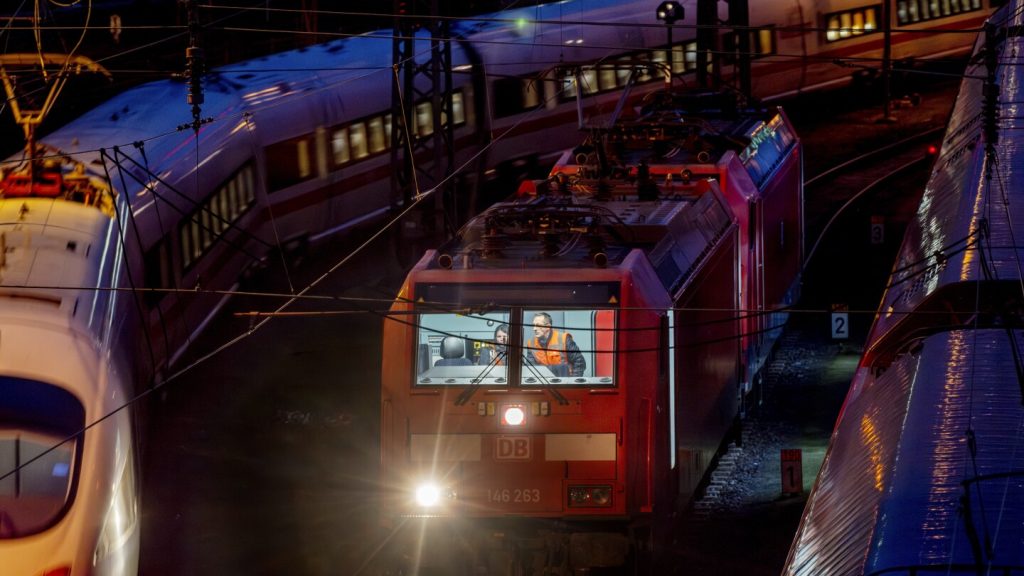The major railway operator in Germany, Deutsche Bahn, has reached a significant deal with the GDL union, representing many of its drivers and crew members. This agreement will see a reduction in working hours from 38 to 35 hours by 2029, without any accompanying pay cuts. Employees will also have the option to work longer hours for more money. This deal comes after five months of negotiations, which were marked by strikes that disrupted train services across the country. The reduction in working hours is seen as a necessary step to attract more employees to the railway sector.
The demand for reduced working hours without a pay cut was a major point of contention between Deutsche Bahn and the GDL union. While some smaller private operators had agreed to this demand, the state-owned railway operator initially resisted. However, the new agreement between the two sides will see a gradual reduction in standard working hours over the next few years. Employees will have the option to choose a working week ranging from 35 to 40 hours, with those opting for longer hours receiving higher pay. This flexibility is seen as a key factor in attracting and retaining staff in a competitive labor market.
In addition to the reduction in working hours, the agreement also includes a pay raise totaling 420 euros per month, to be implemented in two stages. Employees will also receive a one-time payment of 2,850 euros to compensate for inflation. Deutsche Bahn’s personnel chief, Martin Seiler, described the deal as an “intelligent compromise” that provides the company with flexibility and additional capacity in a challenging labor market. The company had expressed concerns about recruiting enough drivers to cover shifts under the shorter work week. GDL chairman Claus Weselsky emphasized the importance of the reduced work week in attracting more employees to the railway sector.
The rail strikes in Germany have caused significant disruptions to train services, with long-distance and regional trains being canceled for days at a time. This has had a major impact on commuters and travelers in Europe’s largest economy. The agreement between Deutsche Bahn and the GDL union represents a significant step towards resolving the ongoing labor disputes in the transport sector. Other recent pay disputes in the German transport industry have involved local transport workers, ground staff, cabin crew for Lufthansa, and airport security staff. The reduction in working hours and increase in pay for Deutsche Bahn employees is expected to have a positive impact on the overall stability and efficiency of the railway network in Germany.


